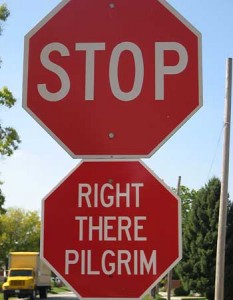How to Avoid a Dense, Unwatchable Video: Content vs. Impact
 Video is an impact medium. In other words, viewers won’t remember specifics, but if your piece is done well, they will “get it.” So loading up a corporate video with a lot of information – ticking down all the checkboxes that have been mentioned by internal stakeholders – will weigh it down.
Video is an impact medium. In other words, viewers won’t remember specifics, but if your piece is done well, they will “get it.” So loading up a corporate video with a lot of information – ticking down all the checkboxes that have been mentioned by internal stakeholders – will weigh it down.
Check out this classic, hilarious example.
Instead, look to open up your video by cutting away the deadweight that people won’t remember anyway. Find the essential message and say it powerfully; then reinforce it. You might use drama, humor, or the sincerity of an honest testimonial. Look for a script that makes the communication memorable and moving – not one that is an easy sell at a meeting.
Motivating, inspiring, challenging: that’s what this medium does best. Give your video production wings by letting go of anything that doesn’t move it forward.
Avid Media Composer: A brand-renewal project to remember
Working on this web site, I’ve been going back through past work. One corporate video production stands out. It was a customer video for Avid Technology, a software/hardware provider of professional video editing and audio products. In particular, they wanted to reinvigorate their flagship product, Media Composer, the one that basically created the modern digital nonlinear editing field. (Don’t come after me, all you Ediflex/EditDroid/EMC2/CMX6000/EPIX/Montage historians.)
The assignment was to find out what made the best editors tick… what drove them and why they did it. The rub was that we had to do it in roughly five minutes.
Well, you can decide whether the video itself did the process and the product justice. But going around the country and talking to great editors was an inspirational experience, and to this day I draw on their humanity and their passion. The first cut of this piece was twenty-five minutes long, and I absolutely loved it… it was filled with stories like the one Robert Rodriguez told, learning to edit his movies as a teen in Mexico by hitting the “pause†button simultaneously on two VHS VCRs. If he waited too long to fast forward or rewind to the next shot, the record VCR would come out of pause and he’d have to start again from the beginning to avoid a glitch. Now that’s commitment.
Or to talk to a famous Hollywood editor about the giddy feeling he got when he had to come in to work over the weekend. He didn’t want to hurt his family by telling them how much he loved his job. The project reminded me how lucky I am to be doing this kind of work and how many ways there are to do it well.
Later, as I sliced it up, trying different combinations of ideas and images, I was honoring the craft these editors lived to do. And what material I had to work with – no phony endorsements, just genuine love for what the product enabled them to do. It remains, for me, an example of how art, commerce, and fun can come together, and as a whole, the experience remains my favorite.
Filming, Shooting, Lensing, or WHAT?
Minor rant here. There’s just no good verb to convey what you do when you capture high quality HD footage in the field. Are you “filming?â€Â Well, no and yes. No film is passing by a camera’s opening, or gate, but it does give my clients a sense of the care being taken to get really great-looking shots. The words “shot†and “shooting†also come from the really old film days, when hand-cranked cameras reminded people of the manual, hand-cranked machine guns of the era. So it can be completely misunderstood. And how about the pretentious “lensing?â€Â Please.
So we’re stuck for an accurate, descriptive word. “Videoing†has at least two strikes against it – for one thing, it doesn’t exist, yet, and for another, it could mean anything from watching one to compressing one to uploading one. “Capturing†is another term I sometimes hear clients use, but the connotation is depressing and not very artistic… the imagery is hanging around in the underbrush and we just need to throw a rope around it.
Inside the corporate video production world, we tend to simply “shoot,†without reference to what we are shooting, whether it’s our subject or our medium. It’s ambiguous but I guess it’s the best we have.   I try to avoid terms like “cinematography†and “videography†because they sound either too big or too small.
Why does this matter?  Maybe it doesn’t. But the right word with the right connotation could communicate a lot. HD video production has taken smaller companies like mine and enabled us to compete, from a quality point of view, with bigger firms. We can get amazingly beautiful shots with the right cameras and the right talent behind the lens. Shots that feel as if we are indeed “filming.â€Â And as solid-state capture and DI (digital intermediates) for film becomes the norm, it’s likely that the line between video and film will blur still further.
Any ideas out there? What’s the right word for what we do?
